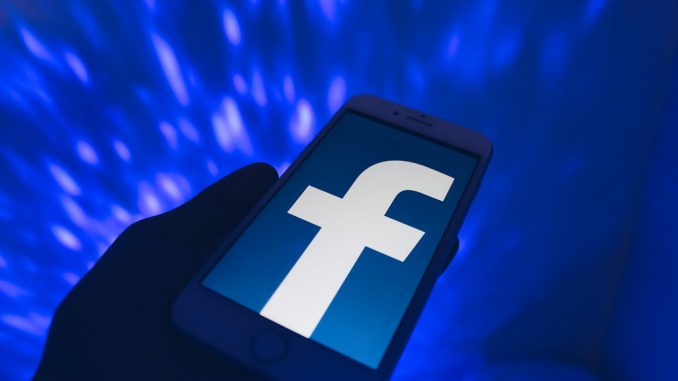
In this digital age, individuals could work, study, play and socialize online, and we are inseparable from the Internet. Social media platforms play an important role in this context, serving as a vital bridge that connects family members, friends, colleagues and even strangers. As the world’s largest social network, Facebook had one billion registered users in 2012, and the number of people using Facebook every day reached half of the total users (Hall, 2021). This hypertextual essay will focus on the business case study of Facebook. First of all, it will briefly introduce Facebook’s overview and illustrate the reasons for its success. Secondly, the company’s source of revenue will be identified and explained. Last but not least, the problems faced by Facebook will be analyzed.
Facebook overview
Facebook is an American social network service company founded by Harvard University student Mark Zuckerberg in 2004, and its headquarters are located in Menlo Park, California (Hall, 2021). Facebook acquired Instagram in 2012 and WhatsApp in 2014, attracting different user groups by broadening digital platforms with different messaging functions (Dijck, Poell & Waal, 2018). On the social networking site Facebook, users could connect with their family, friends, and people they do not know, and could share their favorite photos, videos, and music with others. In June 2019, Facebook’s monthly active users were 2.4 billion globally, accounting for approximately 30 percent of the world’s population, which shows that Facebook has an absolute advantage in the social network market (Mansell & Steinmueller, 2020).
Video 1: “Basic introduction to Facebook” (Wardle, 2012)
Why Facebook is successful?
The reasons for Facebook’s success as one of the world’s most influential companies are being noticed. Simplicity, engaging features, and identity transparency are three important factors.
Simplicity
Facebook is so simple to use that users could easily find the functions they need and communicate with others directly. Compared to another social network, Twitter, Facebook is easier for most people to use (Tillman, 2021). Specifically, although Facebook can recognize and support @ for tagging and # for trending words, knowing how to use these symbols is not necessary for Facebook usage (Tillman, 2021). She points out that Facebook’s algorithm could understand and tag someone by users starting to write their name in a status. However, in order to use Twitter effectively, it is necessary for users to understand the @ symbol, hashtags, and other features, which makes it more difficult for individuals to use (Tillman, 2021). As can be seen, simplicity encourages more users to choose and use Facebook for the long term (Tillman, 2021).

Engaging features
Facebook’s engaging and constantly updated features make the platform indispensable to many users. In addition to basic functions such as messaging, voice and video calls, Facebook also has other functions like follow, subscribe, and Marketplace (Tillman, 2021). The continuously upgraded new features of the social platform such as News Feed, timeline, and cover photo provide users with better and different experiences (Tillman, 2021). In terms of the News Feed feature, which was released in 2006, allows users to quickly and easily access the latest information about their friends from the home page (Hoffman, 2008).
Identity transparency
Identity transparency is an important source of security for users in the digital world, and Facebook has done it well. According to Hall (2021), cofounder Zuckerberg insisted from the beginning that Facebook members should be open about who they are and banned from using false identities. Facebook has forced university users to become a member of Facebook through email address verification since the site was established at the university, which embodies the one person, one identity token approach (Tillman, 2021). The company’s executives believed that transparency plays an important role in developing personal relationships, exchanging ideas and information, and building a whole society (Hall, 2021). Identity transparency has helped Facebook gain the trust of many users, which is conducive to the company’s establishment of a positive brand image.
How does Facebook make money?
Although having 2.23 billion active users on its platform, Facebook does not make money directly from any content posted by users (O ‘Connell, 2018). It is worth noting that Facebook’s main revenue source is advertising sales (Johnston, 2021). Facebook provides users with free services to collect their personal information, forming a huge user profile database (Dijck et al., 2018). Advertisers could use these profiles to better analyze the consumer market and target customers more accurately (Dijck et al., 2018), as well as reach the billions of people around the world who are likely to purchase their products or services (O ‘Connell, 2018). Platform owners could offer various services through digital platforms, and there are two markets in this case (Mansell & Steinmueller, 2020). They mention that one is the user market and the other is the advertiser market. Facebook provides a channel for advertisers to deliver messages to users (consumers), and advertisers have to pay the platform for this service (Mansell & Steinmueller, 2020). In this multisided market, Facebook is “operating as an intermediary or matchmaker service for two separate groups (e.g. users and advertisers)” (Mansell & Steinmueller, 2020, p.38). Facebook’s global influence and large user base have helped it attract many advertisers to put up ads on the platform. The company’s revenue from advertising sales was $39.9 billion in 2017 (O ‘Connell, 2018), and increased significantly to $84.2 billion in 2020 (Mcfarlane, 2021). O’Connell (2018) identifies that approximately 85% of the company’s revenue comes from advertising.
Video 2: “How Facebook makes money off users” (Newsy, 2019)
Concerns about the company
For Facebook, privacy is a continuous issue (Hall, 2021). He states that because of privacy concerns, a consumer study in 2010 ranked Facebook in the bottom five percent of corporations in terms of customer satisfaction. Over the past decade, Facebook’s apparent indifference to data privacy has ultimately led to the apparent success of organizations collecting user data for targeted advertising, especially political advertising (Patterson, 2020).

The Facebook data privacy scandal caused an uproar, and this incident seriously affected the public’s trust in Facebook’s user privacy protection (Maina, 2021). The scandal is that Cambridge Analytica, a data analysis firm working for the Trump campaign, obtained the data of 50 million Facebook users and abused it (Maina, 2021). Cambridge Analytica used the seemingly innocuous ‘This Is Your Digital Life’ app to secretly gather personally identifiable information (Newcomb, 2018). This app built a “psychographic” profile of users based on the OCEAN personality model (openness, conscientiousness, extraversion, agreeableness, and neuroticism) (Patterson, 2020). In order to complete the profile, individuals had to give access to their Facebook homepage (Maina, 2021). After the users granted permission, the app began collecting data from them and their friends (Maina, 2021). Facebook’s failure to protect its users’ privacy has had serious consequences. The US Federal Trade Commission (FTC) imposed a $5 billion penalty on Facebook for privacy issues (Maina, 2021). According to Federal Trade Commission (2019), this penalty is “the largest ever imposed on any company for violating consumers’ privacy and almost 20 times greater than the largest privacy or data security penalty ever imposed worldwide”.
Conclusion
As one of the most successful social networks, Facebook faces many opportunities and challenges at the same time. Factors contributing to Facebook’s success include simplicity, engaging features, and identity transparency. The company’s main source of revenue is advertising sales, which makes money by giving advertisers a channel to get in touch with potential consumers. Privacy needs to be taken seriously by Facebook, though there is still a long way to go.

This work is licensed under a Creative Commons Attribution 4.0 International License.
Reference
Dijck, J. van, Poell, T., & Waal, M. de. (2018). The Platform Society as a Contested Concept. The Platform Society. (pp. 5-32). Oxford University Press.
Federal Trade Commission. (2019). FTC Imposes $5 Billion Penalty and Sweeping New Privacy Restrictions on Facebook. Retrieved from https://www.ftc.gov/news-events/press-releases/2019/07/ftc-imposes-5-billion-penalty-sweeping-new-privacy-restrictions
Hall, M. (2021). Facebook. Retrieved from https://www.britannica.com/topic/Facebook
Hoffman, H. (2008). Four reasons why Facebook is succeeding in social networking. Retrieved from https://www.cnet.com/news/four-reasons-why-facebook-is-succeeding-in-social-networking/
Johnston, M. (2021). How Facebook Makes Money. Retrieved from https://www.investopedia.com/ask/answers/120114/how-does-facebook-fb-make-money.asp
Maina, D. (2021). Facebook Data Privacy Scandal: Here’s What You Need To Know. Retrieved from https://www.easyllama.com/blog/facebook-data-privacy-scandal
Mansell, R. & Steinmueller, W. E. (2020). Economic analysis of platforms. In Advanced Introduction to Platform Economics (pp. 35-54). Cheltenham, UK: Edward Elgar Publishing.
Mcfarlane, G. (2021). How Facebook, Twitter, Social Media Make Money From You. Retrieved from https://www.investopedia.com/stock-analysis/032114/how-facebook-twitter-social-media-make-money-you-twtr-lnkd-fb-goog.aspx
Newcomb, A. (2018). A timeline of Facebook’s privacy issues — and its responses. Retrieved from https://www.nbcnews.com/tech/social-media/timeline-facebook-s-privacy-issues-its-responses-n859651
O ‘Connell, B. (2018). How Does Facebook Make Money? Six Primary Revenue Streams. Retrieved from https://www.thestreet.com/technology/how-does-facebook-make-money-14754098
Patterson, D. (2020). Facebook data privacy scandal: A cheat sheet. Retrieved from https://www.techrepublic.com/article/facebook-data-privacy-scandal-a-cheat-sheet/
Tillman, M. (2021). 10 reasons why Facebook has been so successful. Retrieved from https://www.pocket-lint.com/apps/news/facebook/126998-10-reasons-why-facebook-has-lasted



